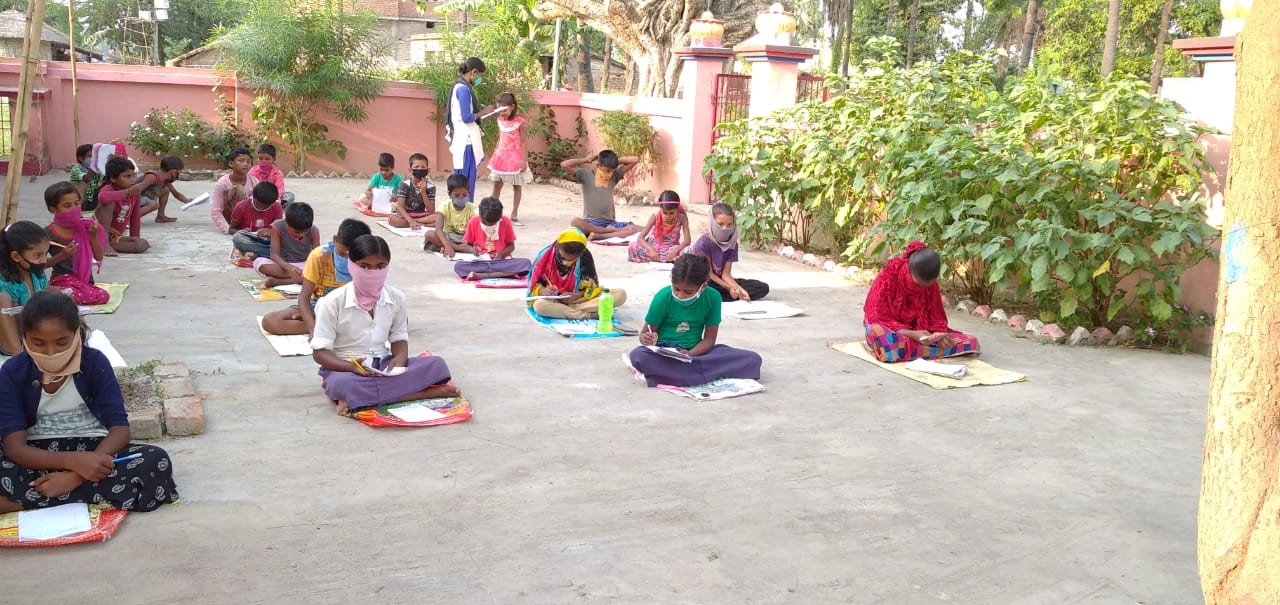The return of migrant workers and students to the state of Bihar came with the double burden of strict lockdown measures as well as flooding in several districts. With lost jobs, strained incomes and lack of basic necessities, the education of children was a challenge for many families. Children who were already out of education due to the nationwide school closures became even more prone to trafficking and child labour. In this crucial time, our WNCB partner MV Foundation recognised the vulnerability of children and risks associated with the pandemic.
The closure of schools and partial relaxation of the lockdown in subsequent months created a well-suited situation for employing children and performing child marriages. There were reports that employers started employing children and that parents willingly sent them for work as the schools were closed. MVF made an innovative effort of starting academic centres in the project area.
While the idea received wide support from many parents, village leaders and others, there was also a part of the population who raised doubts about the implementation. Parents were worried about children’s health. MVF volunteers debated the issue with the parents and village leaders, and assured them to meet all the protocols and required precautions related to the pandemic.
By the end of August, 106 centres were being run by MVF and 25 centres by volunteers. A total of 3164 children were put back into the cycle of education. Classes were organised in school buildings and sometimes in the tree shades. Children were encouraged to wash their hands and 3 feet distance was observed in each classroom.
This experiment brought a significant change in the perception of people and children. In the centre in Rajapakar North, it took 4 to 5 days for children to adjust in the new environment. After being in the programme for 15 days, the children would come to the centre on their own and call the teacher over phone if he/she was not around. A mobiliser and teacher said, “Earlier they used to come with dirty clothes, grown hair and nails. We organised parents meetings and talked with them. Now, they are wearing washed clothes, taking bath every day and arrive well groomed.”
Another teacher said, “When I started the centre, the children did not have any idea as to how to hold a pencil or a book. They did not know how to count the numbers. I thought it would be a challenge for me. Though it took some time, I am happy now that this particular group of children is able to hold pencils and books properly, count numbers and some of them are able to do additions as well.”

